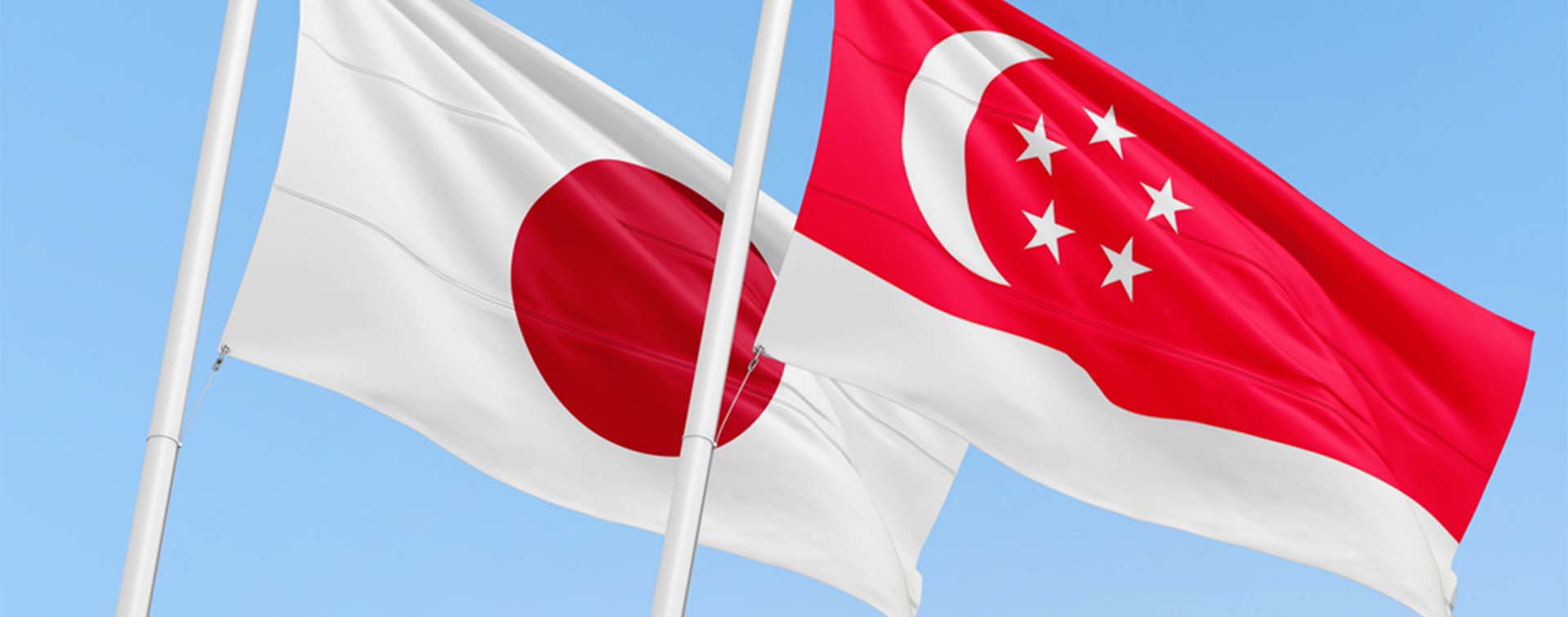
Curtis S. Chin is a former US Ambassador to the Asian Development Bank, Chair, Asia Fellows, and Senior Advisor, Global Markets of the Milken Institute, and Managing Director of advisory firm RiverPeak Group, LLC.
In many ways, Japan and Singapore could not be more different — at least when it comes to geography. Yet through the lens of global mobility, there are also striking similarities as each of these wealthy, dynamic nations moves forward post-pandemic.
While vastly distinct in size, Japan, an archipelago of some 123.7 million people spread across 6,800 islands, and Singapore, a city state of some 5.9 million people, have been ranked 1st and 2nd, respectively (and at times interchangeably) on the Henley Passport Index since 2018, or they have shared the top position like they did in the Q1 edition of the index this year. This global index ranks the world’s passports according to the number of destinations their holders can access without a prior visa.

In the latest data, however, Singapore firmly and singularly occupies the Number 1 position in the ranking, with its citizens having visa-free or visa-on-arrival access to 192 out of 227 countries and territories around the world.
Tied at Number 2 on the index are Germany, Italy, and Spain, whose passport holders all have visa-free or visa-on-arrival access to 190 destinations. These countries are followed at Number 3 by five other European nations as well as South Korea and Japan, all with visa-free access to 189 destinations.
For nearly two years, the reality has been that the power of these and other passports for visa-free access was undercut by travel restrictions imposed by governments due to concerns over the spread of Covid-19. Most definitely for tourism and also largely for business, international travel came to a halt. Those times are behind us as Singapore, Japan, and almost every country has reopened, with governments continuing to think through new policy and regulatory changes to, in essence, build back better.
Among the industry leaders in attendance at the 26th Milken Institute Global Conference were the then-Chief Executive Officer of the Singapore Tourism Board Keith Tan and Japan’s Minister for Digital Transformation and Minister for Digital Reform Taro Kono, who both asserted that their respective nations were open for business and firmly moving forward as Covid-19 restrictions have lifted.
For tiny Singapore, which led much of the Asia-Pacific region in reopening its borders, the results continue to be promising when it comes to visitors. In the first six months of 2023, Singapore welcomed 6.28 million people, or 67% of the number of visitors for the comparable pre-pandemic 2019 period.
Singapore’s strengths across global connectivity, infrastructure, and technology continue to attract thought leaders, businesses, high-net-worth individuals, and investors, despite the city state replacing Shanghai as the most expensive city for an ‘upper-class lifestyle,’ according to the Julius Baer Group’s 2023 Global Wealth and Lifestyle Report.
As travel restrictions have lifted, Japan — like Singapore — has also moved forward to attract not just visitors but also qualified individuals who might bring desired skills and investment and stay a while.
Travel restrictions to prevent the spread of Covid-19 had devastated Japan's tourism industry, with foreign visitors to Japan plunging to a record low 245,900 in 2021, breaking the previous recorded low of 352,832 in 1964. The Japan National Tourism Organization estimates that the number of international travelers to Japan in March 2023 was 1,817,500. That’s a 2,648.7% increase from the same month of the previous year. This number has continued to increase since border measures for entry to Japan were relaxed in October 2022, but visitor numbers remain below the pre-pandemic levels.
In a positive sign, visitor numbers reached nearly 1.9 million in May, reflecting approximately 70% of pre-pandemic levels compared to the same month in 2019. Travelers from South Korea accounted for the largest share of the total at 515,700, followed by Taiwan, the US, and Hong Kong. Strikingly, there were more arrivals from the US, Canada, and Singapore compared with pre-pandemic levels.
The good news for the globally mobile is that some government leaders in Japan — a nation often seen as inward-focused and slow to change — are exploring regulatory reforms and changes. This spring, as an example, came news that Japan might consider introducing a special visa for digital nomads, individuals who work remotely while traveling around the world. According to media reports by the Straits Times and others, “Eyeing the increasing number of countries in Europe and elsewhere that have launched digital nomad visas, the Japanese government hopes to boost consumption among foreign visitors to Japan by creating a convenient environment in which high-skilled workers can stay in the country.”
Outbound tourism remains at 30% of the pre-pandemic levels, a stark contrast to the 80% in the US and nearly 70% in France, according to the Japan Association of Travel Agents (JATA). In an effort to incentivize travel, JATA will gift USD 60 by lottery to 3,210 Japanese citizens who acquire a 10-year passport and fly internationally between 1 July and 30 September 2023.
Every nation is shaped by its history and this is no different when looking at the outward-focused, trading and finance hub that is modern Singapore compared to Japan, whose two millennia of history have included long periods of being cut off from the rest of the world.
The new Henley Openness Index offers valuable insights to policymakers by reversing the Henley Passport Index data to rank the world’s passports according to their openness to visitors from other countries. Where the passport index is based on visa-free access for passport holders, the openness index looks at how many destinations each of the countries on the Henley Passport Index allows in without requiring a visa in advance. Singapore is open to 163 countries without a prior visa, ranking 14th on the Henley Openness Index. Japan, on the other hand, only allows in 69 destinations visa-free and ranks 62nd on the new index.
While Singapore and Japan have very different approaches to openness, their passport holders have both been gaining access to other destinations, and the nations have improved their passport index scores at a similar rate. Overall, Singapore has gained access to more destinations than Japan, showing that being more closed does not make other countries more likely to give you access, but being more open could potentially lead to gaining more access, as it enables more bilateral agreements.